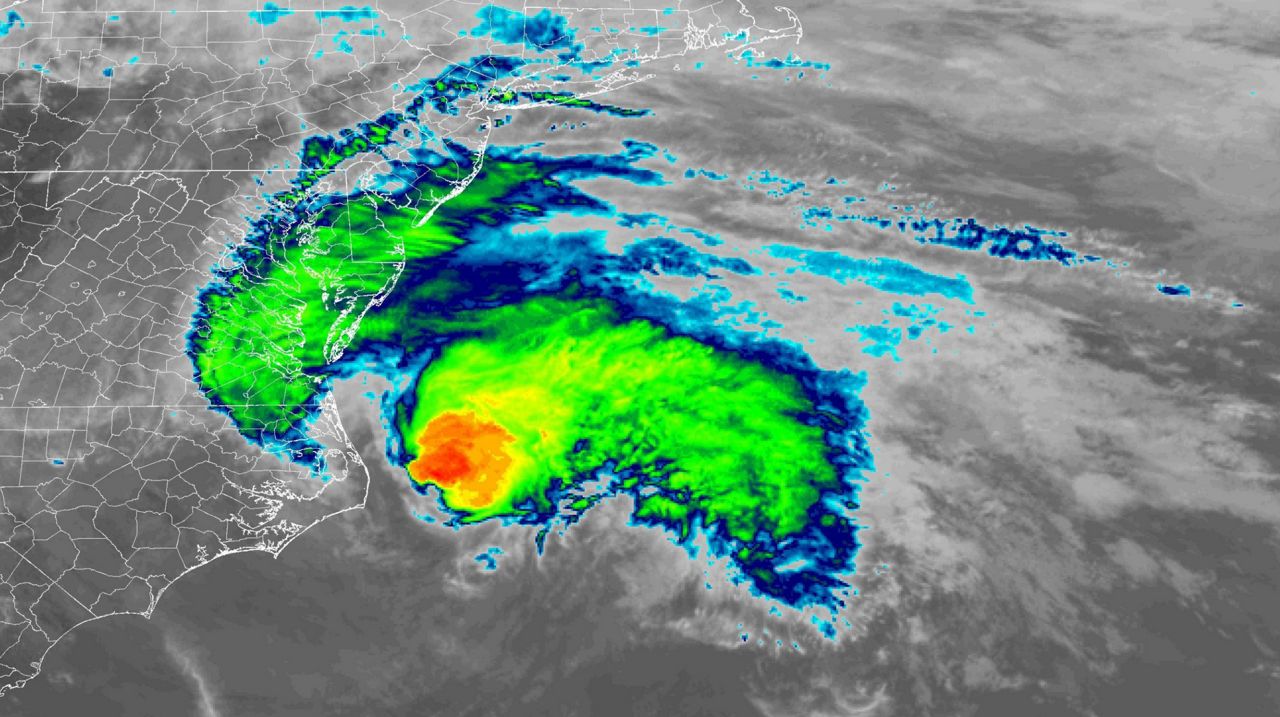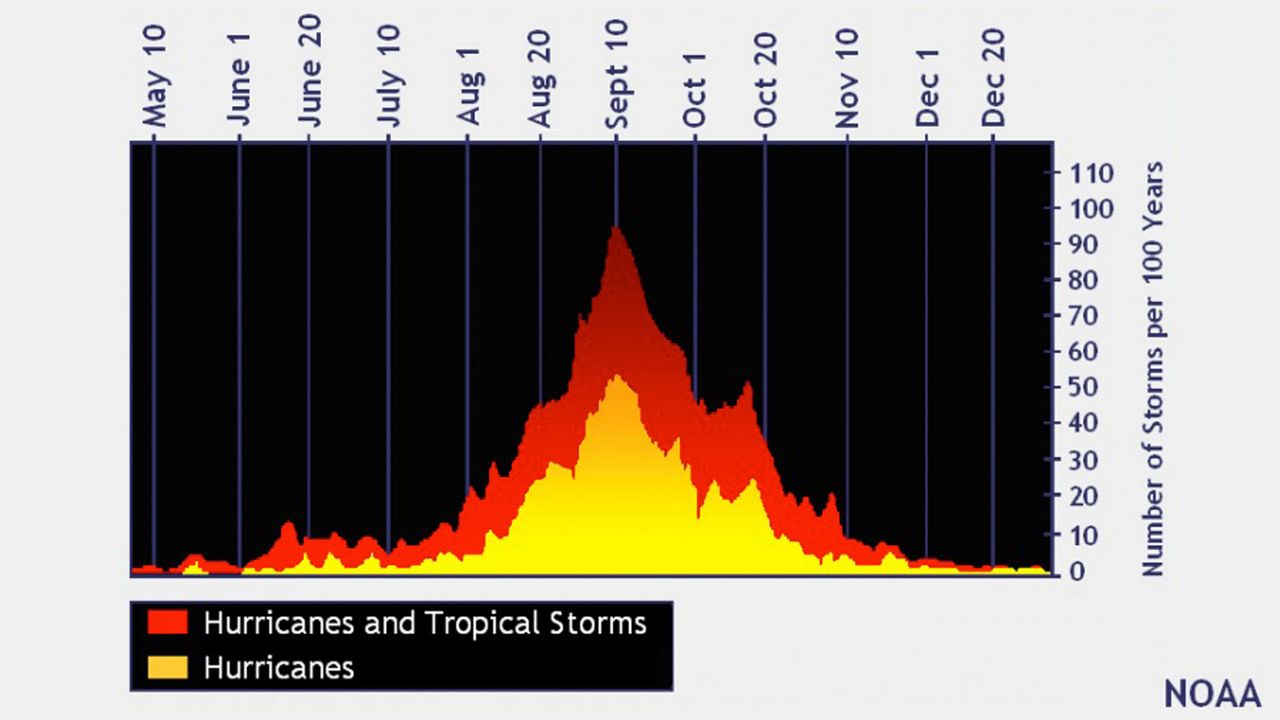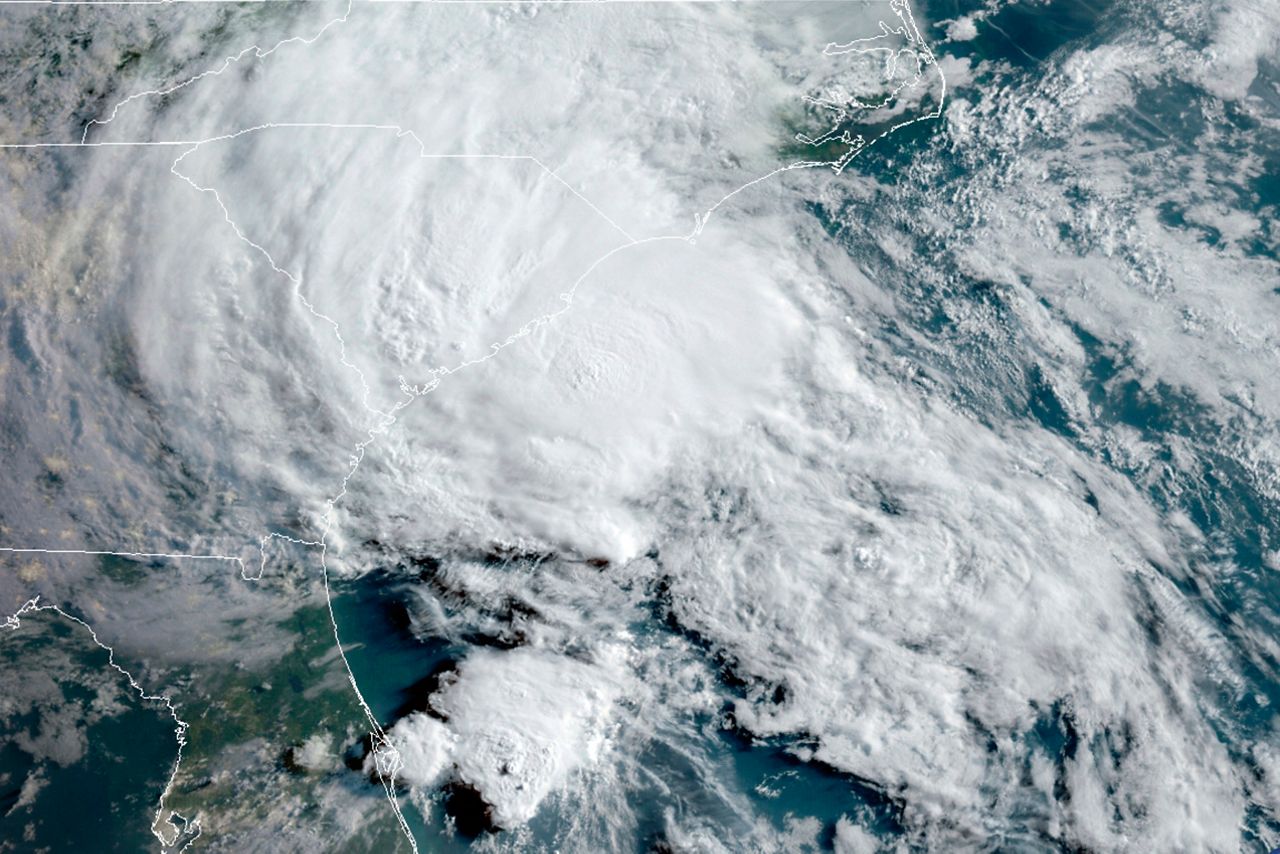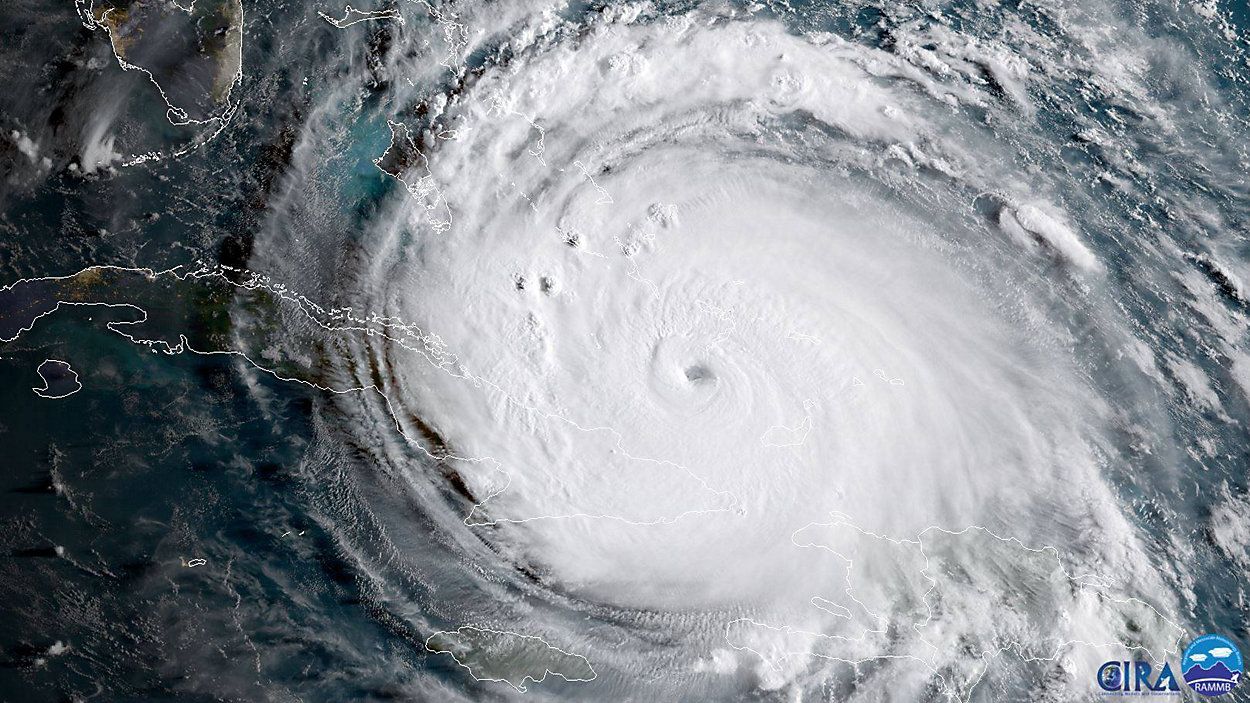A new National Hurricane Center committee could move up the official start of the Atlantic basin's hurricane season to May 15, formalizing a recent trend of increased tropical activity before the current start date of June 1.
The new proposal would move the official start date of the Atlantic basin's hurricane season a little over two weeks earlier to May 15.
At the annual National Oceanic and Atmospheric Administration (NOAA) Hurricane Conference in December, members recommended forming a wide-ranging team tasked with examining changes, including a potential adjustment to the start date of the Atlantic hurricane season.
"Considerations for the team would include a determination of a quantitative threshold for adding or removing dates from the official Atlantic hurricane season," wrote Dennis Feltgen, the Communications and Public Affairs Officer at the National Hurricane Center (NHC). "Then, an examination would need to take place regarding the need for, and potential ramifications of, potentially moving the beginning of the hurricane season to May 15."

The move, however, will not happen in time for the 2021 Atlantic hurricane season. That said, the NHC will start issuing tropical weather outlooks on May 15 this year, a change from past seasons when those waited until June 1.
"In order to provide more consistent information on the potential for late May and early June systems, NHC will now begin the routine issuance of the Atlantic (tropical weather outlooks) on May 15, which is when routine tropical weather outlooks also begin for the eastern Pacific basin," Feltgen wrote.
The World Meteorological Organization also announced that the NHC is in the process of reviewing a possible move to mid-May to account for the recent increase in named tropical systems.

"It makes sense since (the NHC has) started naming subtropical storms too," said Spectrum News Chief Meteorologist Mike Clay, based in Tampa. "We usually get one somewhere over the ocean in late May. The west coast of Florida is usually impacted in some way or another by a tropical storm in late May to June about every other year. But, most are tropical storms rarely do anything other than bring us some rain to end the 'dry season'."
While there is evidence pointing to increased tropical early season activity due to potential impacts from climate change, storms that form earlier in the season are typically weaker and short-lived.
"The 'real' hurricane season is in August, September and October," Clay said. "We might have something in June or July but it usually doesn't do much."
A big part of the increase in early season storms also has to do with the NHC's decision to begin naming subtropical systems in 2002. Subtropical storms are hybrid systems that combine elements of both tropical and mid-latitude low pressure systems, and they often form on the fringes of tropical seasons.
"There's a lot of subjectivity with that, and we obviously have a lot of better technology now than we did," said Dr. Phil Klotzbach, a hurricane researcher at Colorado State University. "From 1982 to 2006, we had no named storms in May. From 2007 on, we've had 15 during May. These storms in general are ugly."
"We have not had a landfalling hurricane on record make landfall on the U.S. in the month of May," said Dr. Klotzbach.

Subtropical storms account for a large portion of early season systems, and the NHC's decision to begin naming them is likely helping boost early season named storm totals.
"Named storms have formed prior to the official start of the hurricane season in about half of the past 10-15 years, including each of the past (six) years," Feltgen wrote. "Many of the May systems are short-lived, hybrid (subtropical) systems that are now being identified because of better monitoring and policy changes that now name subtropical storms."
Dr. Klotzbach, however, expressed concerns that holding the public's attention for an extra two weeks could prove challenging, especially during the typically quieter first few months of the Atlantic season.
"If you want to encompass the full chances of having a named storm, then May 15 [is the right date]," said Dr. Klotzbach. "But if you're looking to focus on more impactful events, then June 1 is fine. My concern is how long we can keep people's attention on hurricanes."
The Atlantic hurricane season currently runs from June 1 through November 30.
